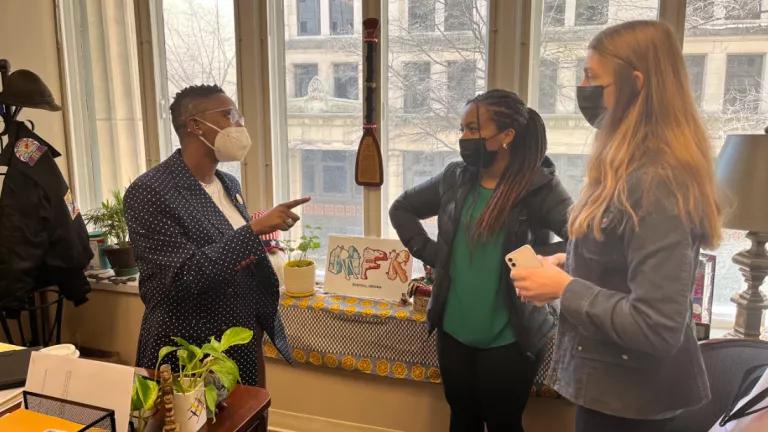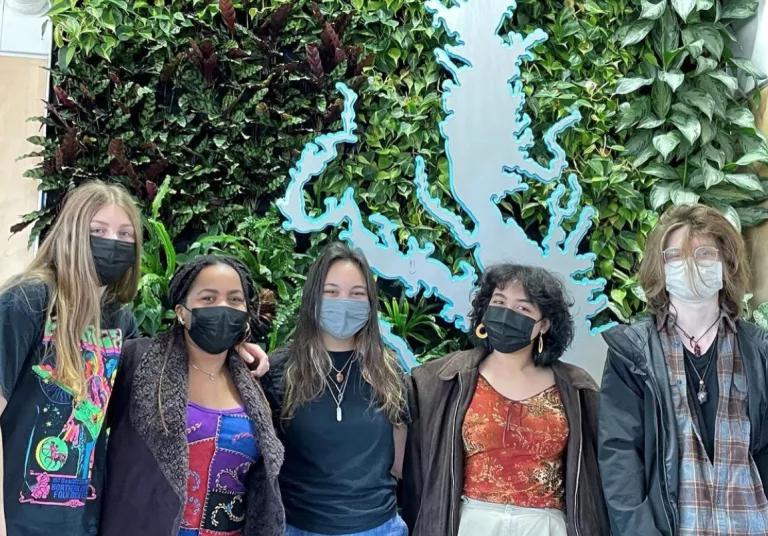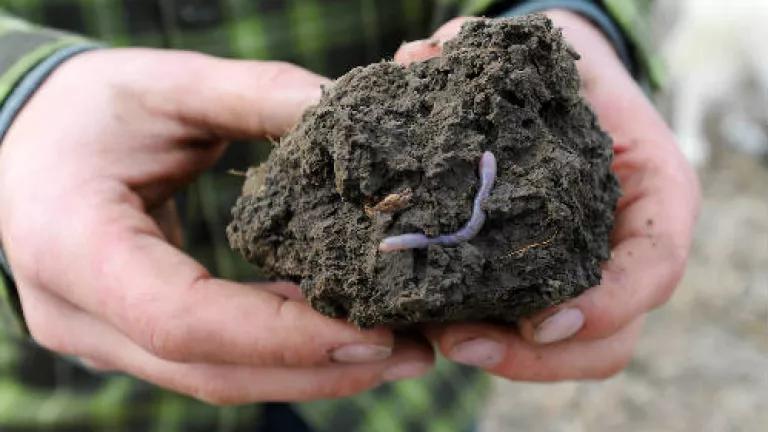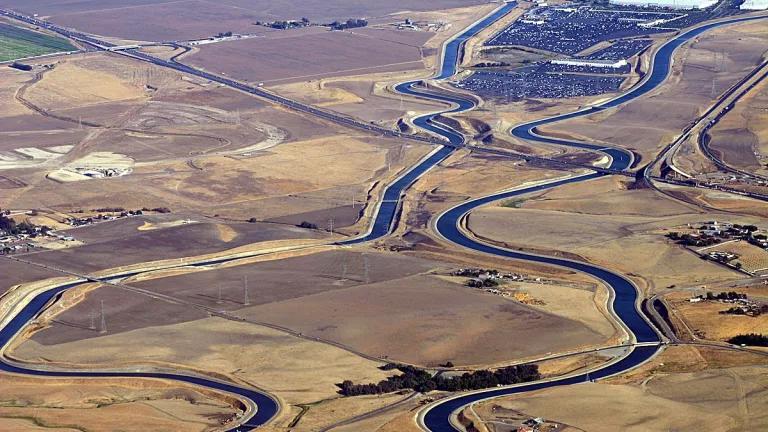Students Intro Bill to Combat Food Waste in Virginia
Students in Virginia wrote a bill that would extend liability protection to businesses, restaurants, and any food donation group who would like to donate food past the “best by” date.

Co-written by Natalia de los Ríos, Ure Emejuru, Cayden Braswell, and Matthew Stanley, participants in the Brock Environmental Center’s Environmental Studies Program (bios included below)
A recent EPA Report underscores the fact that we have enough food in this country to feed us all; however, 13.8 million people in our country still face food insecurity. Addressing the underlying causes of food insecurity is complex, requiring economic, political, and social policy reforms to address generations of inequity, but better distributing surplus food can offer some immediate relief. To do this in our home state of Virginia, we wrote a bill that would extend liability protection to businesses, restaurants, and any food donation group who would like to donate food past the “best by” date. It was introduced as HB 1249 and we are working to get it passed by our legislature.
Currently, you cannot donate food in Virginia past the “best by” date, but most date labels have no correlation with health and safety. These labels are commonly used to regulate stock rotations, for inventory purposes, and to indicate the peak quality for the product to be consumed (e.g. color, sweetness, or taste). Due to this confusion, roughly $29 billion worth of consumer spending is wasted. This amount feeds into the astonishing $408 billion in food thrown away each year. In addition, many businesses and recipient organizations are reluctant to donate or accept perfectly edible food past an arbitrary date, solely for fear of liability. We have seen this through our work in the Virginia Beach chapter of Food Rescue US.
If passed, HB 1249 would help clarify that food is still good to eat despite “best by” dates. It would also provide additional economic and environmental benefits. By diverting food away from the landfill, it would help cut methane emissions from landfills. The bill would save businesses money on garbage pickup costs, as well as providing them with tax credits for donating food. It would also make more food available to those experiencing food insecurity.
If you live in Virginia, we need your help to get HB 1249 passed. Here’s what you can do:
- The best way to make sure your voice is heard is to call your state legislators. Find their number here and make sure to mention this is in regard to supporting HB 1249: https://whosmy.virginiageneralassembly.gov/.
- If calling makes you nervous, you can leave a comment in support of HB 1249 here: https://hodspeak.house.virginia.gov/committees/H01/bill_feedback.
- We created a guide to help you make public comments here: https://docs.google.com/document/d/1HvzvecxUa1knTbfYeeFuwZoh0v5yeXlkB-O1ifYFOWE/edit?usp=sharing
- Finally, we are also looking for public endorsements or written statements from food-related businesses and non-profit organizations showing support for the bill and how it might affect them and their mission in a positive manner. Please email virginiabeach@foodrescue.us if interested in more details.
We are incredibly grateful for chief patron Delegate Glenn Davis and co-patrons Delegate Jackie Glass, Delegate Elizabeth Bennett-Parker, Delegate Dan Helmer, and Senator Lynwood Lewis for their leadership on this issue.
If you do not live in Virginia, we encourage you to check out the liability protections in your state and see if they need improving.
Meet the team

Natalia de los Ríos is a junior in the International Baccalaureate Program at Princess Anne High School and the Environmental Studies Program (ESP) in Virginia Beach. She founded the Virginia Beach chapter of Food Rescue US in 2020 and has rescued over two million pounds of food and redistributed it to those facing food insecurity. At ESP, she is also working on an initiative to extend access to organic waste composting.
Ure Emejuru is a student at Princess Anne High School and L.A.A.W Scholar with Clever Communities in Action. Through her work in food rescue she has appreciated the opportunity to speak with many members of my community. She believes this policy is just a step towards reducing socioeconomic inequities present in our country today.
Cayden Braswell is a junior at Princess Anne High School and in the Environmental Studies Program. She is also a youth commissioner in the Virginia Beach Clean Community Commission. She is passionate about agriculture, waste, and equity. Working at restaurant jobs has exposed Braswell to the astonishing amount of perfectly good food thrown out on a daily basis, when there were clearly people who needed it.
Matthew Stanley is a student at Kempsville High School as well as the Environmental Studies Program in Virginia Beach. He has a love for making meaningful change, and an interest in policy making.



